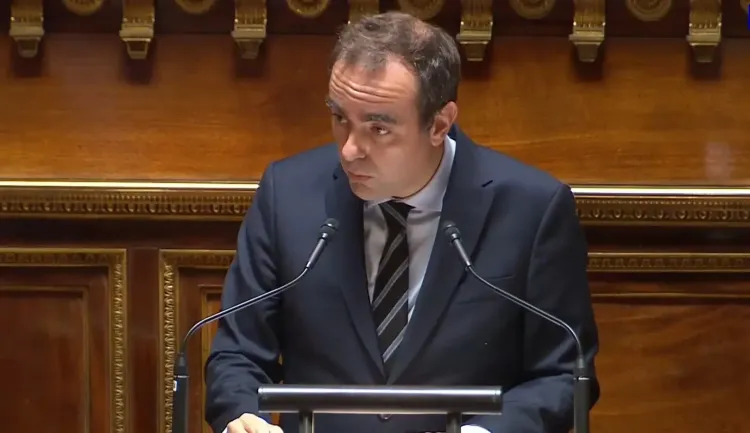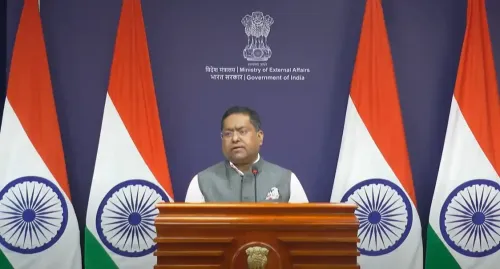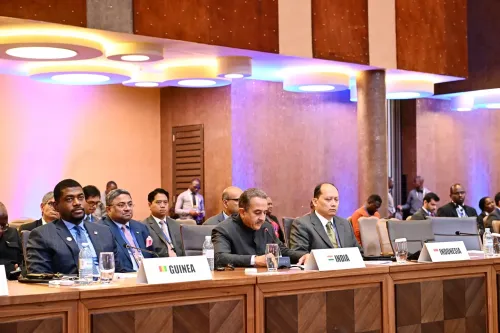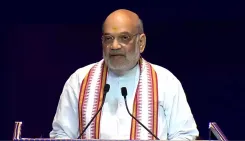Did French PM Sebastien Lecornu Overcome Two No-Confidence Votes?

Synopsis
Key Takeaways
- Sebastien Lecornu survived two no-confidence votes in the National Assembly.
- The motions were filed by La France Insoumise (LFI), National Rally (RN), and Union of the Right for the Republic (UDR).
- His cabinet includes 34 ministers, with significant appointments.
- Challenges such as rising debt and poverty remain pressing issues.
- The political landscape in France remains dynamic and requires strong leadership.
Paris, Oct 16 (NationPress) The newly-appointed French Prime Minister Sebastien Lecornu triumphantly navigated two no-confidence votes in the National Assembly on Thursday. The motions of censure were initiated by La France Insoumise (LFI), the National Rally (RN), and their ally, the Union of the Right for the Republic (UDR).
The first motion, introduced by LFI, garnered support from 271 members of parliament, yet fell short by 18 votes of the necessary absolute majority to unseat the government, as reported by leading French daily 'Le Monde'. The motion received backing from the Insoumis group, ecologists, communists, RN, and UDR, with only three ecologists and two communists dissenting.
The central bloc groups, including Renaissance, MoDem, Horizons, Les Republicains (LR), Socialist Party (PS), and Liberties, Independents, Overseas and Territories (LIOT), voted against the motion. Notably, seven Socialist deputies and one LR representative supported it.
Meanwhile, the motion presented by RN and UDR attracted only 144 votes, receiving backing from their respective groups and three LR deputies, while the remainder of lawmakers opposed it.
Reappointed for a second term as France's PM on October 10, Lecornu had resigned from his role just days earlier, as stated by Euro News. Following his reappointment, he announced his government on Sunday, which comprises 34 ministers.
This new cabinet features several individuals from previous administrations, including members from Macron’s centrist camp and allied conservatives, alongside a few outsiders. Noteworthy appointments include former Labour Minister Catherine Vautrin, now serving as Defence Minister.
Additionally, Paris police chief Laurent Nunez, who oversaw security during the 2024 Olympics, has been appointed as France's Interior Minister. Roland Lescure takes charge of finance, a critical position as France grapples with rising debt and poverty. Other ministers retaining their positions include France's Foreign Minister Jean-Noel Barrot.
Lecornu's resignation on October 6 came just weeks after his initial appointment, following criticism from both his camp and the opposition. The conservative Republicans party expressed outrage over the return of Bruno Le Maire as Defence Minister.









